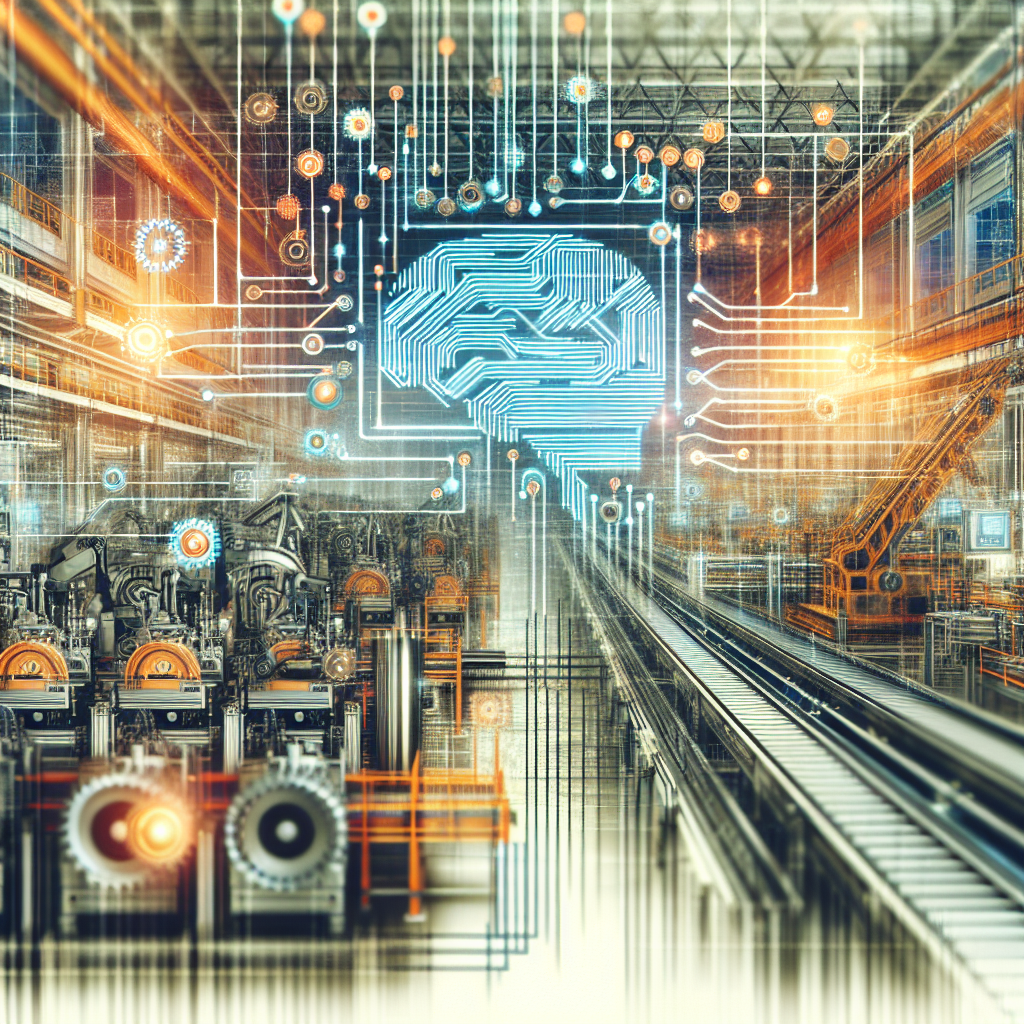Predictive maintenance is a crucial aspect of the industrial and manufacturing sector, as it helps companies save time and money by identifying potential equipment failures before they occur. With the advancement of technology, artificial intelligence (AI) tools are now being used to enhance predictive maintenance strategies in these settings. These tools can analyze large amounts of data to predict when equipment will require maintenance, ultimately reducing downtime and increasing efficiency.
AI tools for predictive maintenance in industrial and manufacturing settings use machine learning algorithms to process data from sensors, equipment, and other sources to predict when maintenance is needed. These tools can analyze patterns and trends in data to identify anomalies that may indicate potential equipment failures. By using AI tools, companies can proactively address maintenance issues before they cause costly downtime or disruptions in production.
One of the key benefits of using AI tools for predictive maintenance is the ability to schedule maintenance activities based on actual equipment condition rather than a predetermined schedule. This approach, known as condition-based maintenance, allows companies to optimize their maintenance schedules and resources, leading to cost savings and increased efficiency. Additionally, AI tools can help companies prioritize maintenance tasks based on the criticality of equipment and the potential impact of failure on production.
Another advantage of AI tools for predictive maintenance is the ability to detect early warning signs of equipment failure that may not be apparent to human operators. By analyzing data from sensors and other sources in real-time, AI tools can identify subtle changes in equipment performance that may indicate a potential issue. This early detection allows companies to take corrective action before a failure occurs, minimizing downtime and reducing the risk of costly repairs.
In addition to predictive maintenance, AI tools can also be used for prescriptive maintenance, which involves recommending specific actions to prevent equipment failures. By analyzing historical data and equipment performance, AI tools can suggest maintenance strategies that can prolong the life of equipment and reduce the risk of failure. These recommendations can help companies optimize their maintenance practices and reduce costs associated with unplanned downtime.
Overall, AI tools for predictive maintenance offer significant benefits to industrial and manufacturing companies, including increased efficiency, reduced downtime, and cost savings. By leveraging the power of AI and machine learning, companies can proactively manage their equipment and ensure smooth operations in their facilities.
FAQs:
Q: How do AI tools for predictive maintenance work?
A: AI tools for predictive maintenance use machine learning algorithms to analyze data from sensors, equipment, and other sources to predict when maintenance is needed. These tools can identify patterns and trends in data that may indicate potential equipment failures, allowing companies to proactively address maintenance issues before they occur.
Q: What are the benefits of using AI tools for predictive maintenance in industrial and manufacturing settings?
A: AI tools for predictive maintenance offer several benefits, including increased efficiency, reduced downtime, and cost savings. These tools can help companies optimize their maintenance schedules, prioritize tasks, and detect early warning signs of equipment failure, ultimately improving operations and reducing the risk of costly repairs.
Q: How can companies implement AI tools for predictive maintenance?
A: Companies can implement AI tools for predictive maintenance by integrating them into their existing data management systems and equipment monitoring processes. By collecting and analyzing data from sensors and other sources, companies can leverage the power of AI to enhance their predictive maintenance strategies and improve overall equipment performance.
Q: Are AI tools for predictive maintenance suitable for all types of industrial and manufacturing equipment?
A: AI tools for predictive maintenance can be used for a wide range of industrial and manufacturing equipment, including machinery, production lines, and other assets. These tools can analyze data from sensors and other sources to predict when maintenance is needed, regardless of the type of equipment being monitored.
Q: What are the challenges of implementing AI tools for predictive maintenance?
A: While AI tools for predictive maintenance offer significant benefits, there are some challenges associated with their implementation. These challenges may include data integration issues, the need for specialized expertise, and the initial investment required to deploy AI tools. However, companies that successfully overcome these challenges can realize substantial improvements in their maintenance practices and operational efficiency.

